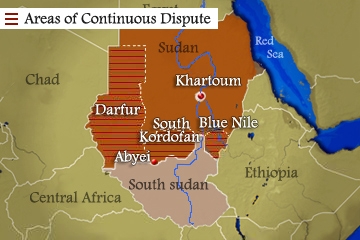
Nearly twenty three years have passed since the regime of Sudanese President Omar al-Bashir seized power in a military coup on 30th June 1989, thus breaking the record as the longest-standing government in the national history of Sudan. It has outlived the military regimes of Lieutenant-General Ibrahim Abboud (1958-1964) and Field Marshal Jaafar Nimeiri (1969-1985), which together ruled for twenty two years. Al-Bashir’s regime has lasted twice as long as all of the democratically elected governments headed by Ismail Azhari (1953-1956), Abdullah Khalil (1956-1958), Sir al-Khatm Khalifa (1964-1965) for the transitional period following the October 1964 Revolution that toppled Abboud, Mohammed Ahmed Mahjoub (1965-1966), al-Sadiq al-Mahdi (1966-1967), Mohammed Ahmed Mahjoub once again (1967-1969), al-Jizouli Dafe' Allah (1985-1986) for the transitional period following the April 1985 uprising that toppled the Nimeiri regime, and al-Sadiq al-Mahdi once again (1986-1989).